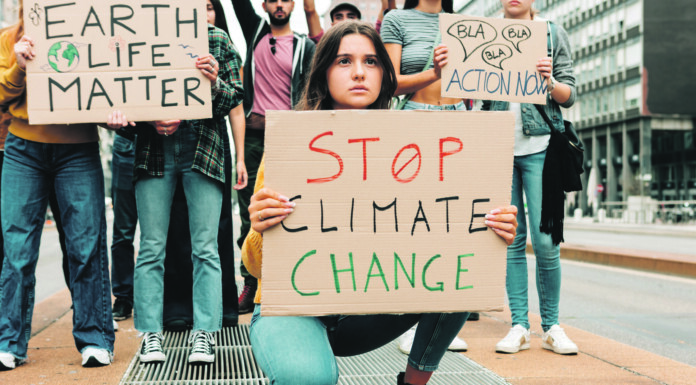We’ll open with a lyric from pop-punk band My Chemical Romance: “Teenagers scare the living s*** out of me.”
As a journalist, I meet a lot of young people – and I’ll usually arrive at our interviews with knots in my stomach. It’s like I’m back at school myself – perpetually afraid of landing on the “uncool” heap, risking censure from my more socially astute peers.
And yet, I leave the interview feeling uplifted. Of all the people I’ve conversed with, teens are some of the most articulate, socially aware and creative. They’re organising climate justice protests, campaigning to rid supply chains of modern slavery, and spending their own money on books for sick children. They’re directing their own plays, and writing and shooting their own films. They’re dedicating hours to their craft: Whether that’s handling dogs [page 1] or appearing in musicals [page 4].
If you were to read some other newspaper stories, you’d find a very different picture of young adulthood. You’d find teenagers who, at best, barely look up from their phones, and are easily led astray by Instagram trends. At worst, ramming cars into jewelry stores, and can only be rehabilitated by a stint in the army. Plenty for older generations to be afraid of. Any positive coverage is usually reserved for the rare “superstars”: The aspiring All Blacks and young pop idols.
Surely, between the hoodie-clad hooligans and Billie Eilish, there’s a middle ground?
Negative media representations of young people are hardly uncommon. Research from Oxford University, studying media coverage from the 1960s onwards, found depictions of young people have been highly contradictory: Teenagers are either instigators of violence and are thus a danger to society; or vulnerable and helpless, and needing adult protection.
A 2004 UK study found 1 in 3 youth-related articles were based around youth crime – and young people themselves were quoted in only 8 per cent of these reports. Academics refer to this phenomenon as “the adult gaze”: Young people’s stories told through an adult filter and the teenage voice is practically invisible.
Has the Western media evolved since then? Perhaps not. In 2020, an Australian study found 50 percent of 16 to 35-years-old believed they were misrepresented in news reports. One particular stereotype that persisted was vapidity, exacerbated by reality TV and influencer culture. In fact, when asked what they cared about most, the top three answers young Australians gave were mental health, the environment, and gender equality.
I don’t deny there are significant [and newsworthy] issues facing young people. I don’t deny young people can make poor decisions — there are scientific reasons for that.
But still, teenagers are human — and therefore multifaceted. Some teenagers are involved in ram raids every weekend. Others do their homework, get on with their families, do regular volunteer work, and are leaders in their school communities.
And we know negative stereotypes have real world consequences. Studies have correlated stereotyping with increased self-doubt, reduced focus, and higher levels of academic anxiety among teens. When stereotypes are internalised by the wider community, young people become vulnerable to alienation and discrimination.
This is where the media can provide a counterbalance. Teens can be self-absorbed — and community-minded. Teens can be obsessed with their phones — and with their hobbies and special interests. Teens’ brains aren’t always great at forethought — and yet they have ideas on how to leave the world in better shape. Are adults willing to listen? I know I can do better.
The positives may not sell as many papers. But teens are full and complete people. And the full picture deserves to be reported.
To all the young people who have shared their stories with Midweek — thank you. Apologies for the nerves — I’m working on it.


